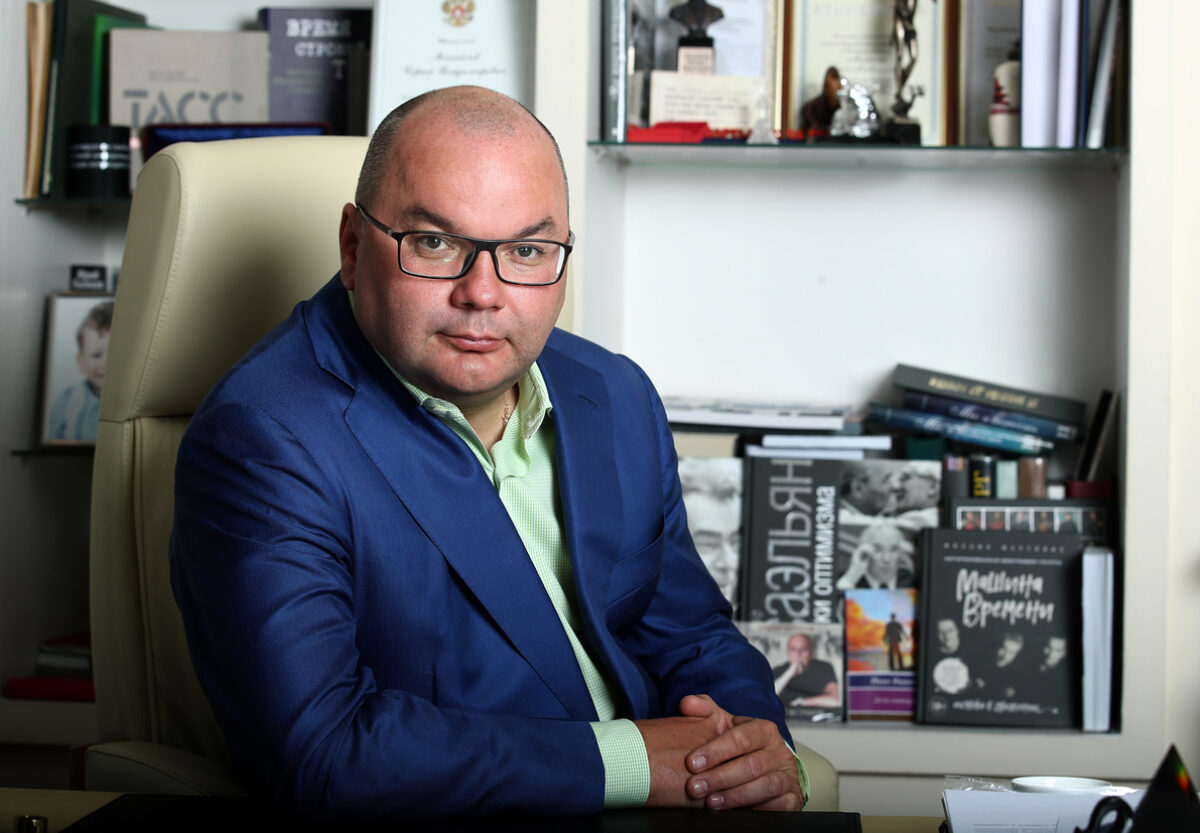
Sergey Mikhaylov (Director General of TASS): The pandemic has brought nothing new to our lives except the virus itself. It only accelerated and activated all the current processes.
TASS needed one week to rebuilt all the editorial processes and establish smooth operation in the online format, after the corona-crisis started, according to Sergey Mikhaylov, the agency's Director General. The Russian government included the media in the list of industries affected by the coronavirus, therefore TASS also benefited from that help. More about TASS' activity during the crisis, in the EANA Top Voices interview below.
Working in a crisis-environment is not easy, especially for journalists of a news agency, big or small. What can you tell us about the measures taken by TASS for the protection of its own journalists during the pandemic?
The pandemic took us all by surprise, no one was prepared for this turn of events. We had very little time to react to the changed circumstances and to understand how to live and work further. But we did it and we did it successfully.
Taking care of the health of employees has always been one of the key tasks in TASS, and under the conditions of coronavirus, it has become an absolute priority. Therefore, first of all, the majority of TASS employees (90%) were transferred to remote work and started working online. For those who remained at the office – monitoring, photographers, services that support the life of the building – we have taken all possible measures of prevention. Among them are the temperature measurement at the entrance to the office, the observance of social distance inside of TASS, the daily provision of all employees with masks and gloves, regular testing for COVID-19 and regular disinfection of all areas.
I would like to especially acknowledge the work of our journalists and photojournalists, who from the first days of the epidemic actually found themselves on the front line of the fight against coronavirus. They recorded how the life of cities was changing, met compatriots returning from abroad at the airports, and disinfected streets and public transport along with public services... Our photographers were among the first to get into the so-called "red zones" of hospitals, where they worked in protective suits for 10 hours without a break. At the same time, I want to note that all our reporters were well aware of the huge risk they were taking – and they took it consciously, with their hearts set on it. None of them refused, realizing that this is a real journalistic challenge. I am sure that their work is as important as the work of professionals from other fields who showed heroism in the face of the pandemic. Thanks to their work, we will have a memory and documentary evidence of how the life of the whole world changed overnight.
How did TASS, as an organisation, fare through this crisis, from a financial and editorial point of view?
In fact, in just one week, we rebuilt all the editorial processes and established smooth operation in the online format. Outwardly, no one noticed any changes at all. The Agency has maintained full efficiency of all work processes.
At the same time, we must understand that the information background was such that the number of news was constantly increasing. Now we only publish about 1,100-1,200 messages per day on a single news feed, and on some peak days the number reached 1,500. For comparison: in "peaceful" time, on weekdays, about 1000 news items appear on the main feed on average.
Our photo service also updated the records: in March, the Agency’s subscribers downloaded images of our authors more than 5,000 times. And in April, we had more than 6,700 downloads.
Working in the new environment mobilized everyone and seemed to open a second wind for colleagues from creative departments. Although the end of the pandemic is still far away, today we can be fully proud of the results that TASS has shown in these unprecedented circumstances.
The epidemic has also led to a review of all the Agency's core business processes. The quarantine dramatically accelerated the work on digitalization of our business and its transition to a new online reality. The Press center remotely held press conferences and thematic round tables; the Conference Service launched a new format of online business events for businesses and experts; and we developed a new format for online photo exhibitions as an alternative to the classic photo exhibition. This spring online special projects on tass.ru were in demand. All these and other "virtual" formats are successfully monetized by the TASS commercial block.
I would like to note that many are doing online events now, the competition in this segment has even increased, and the main thing for us is not the quantity, but the quality and efficiency of work.
Of course, due to the pandemic, our partners have had to significantly reduce their budgets, but we are trying to offer them new formats of interaction and we are working to restore our revenue.
Some governments provided different types of help for the media sector during this pandemic. Did the Russian state get in any way involved in supporting the media? Did TASS benefit from any help?
Yes, the Russian Government has helped us a lot by including the media in the list of industries affected by the coronavirus. We received a six-month deferred payment of all taxes, except VAT, as well as rental payments for the use of real estate owned by the state, municipal or private property, interest-free loans for urgent needs and payment of salaries, preferential loans at a rate of 2% for any purpose, a moratorium on bankruptcy, and scheduled and unscheduled inspections. This is really important for us!
How do you see the future of the media in Russia, after the pandemic?
The pandemic has brought nothing new to our lives except the virus itself. It only accelerated and activated all the current processes. Those formats of interaction with the audience that were in a low demand - have disappeared.
I believe that we all need to be as flexible as possible, constantly come up with new formats and not be afraid to implement them. The trend towards digitalization of the media, launched a few years ago, has persisted both in Russia and in the world, and the pandemic has only strengthened it. It is in this direction that we will all move forward.
What would be your theoretical advice you would give to a new or "fresh" manager of a news agency during these days?
Accuracy, reliability and speed of news delivery – these are the three pillars that support the work of any major news Agency. And the pandemic hasn't changed anything here. You can chase the likes and clicks by publishing click-bait headlines or unverified “junk news”: it may generate some immediate benefit, but you will destroy your reputation for the future. In difficult and crisis periods, the demand and value of accurate and reliable information submitted on time increase significantly. And it is news agencies that should be at the forefront of this work.
Interview by Alexandru Giboi (EANA Secretary General) for the "EANA Top Voices" project.


